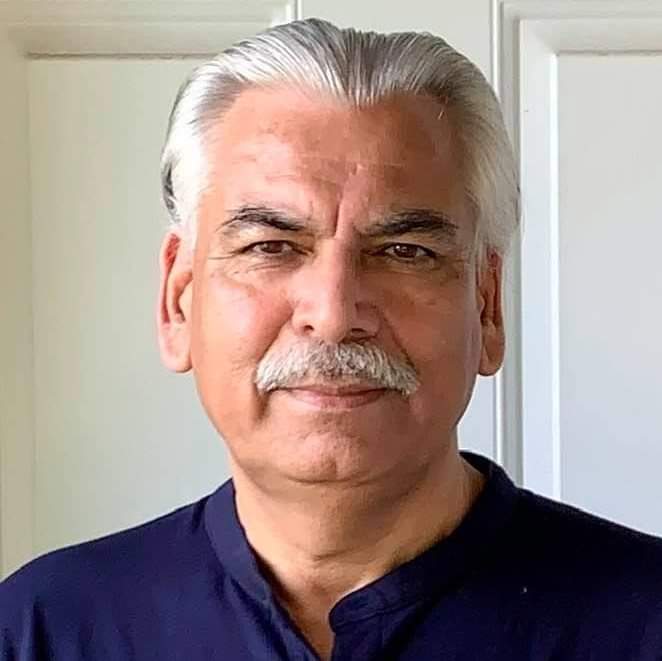By Barrister Usman Ali, Ph.D.
The Pashtun has long stood as a symbol of honour, courage, and fierce independence. He has been the keeper of Pashtunwali, an unwritten yet forceful social code rooted in hospitality, justice, honour, and respect for elders. But today, the question stares us in the face: does any shared moral compass remain? Jealousy, vendettas, killings over petty disputes, dishonour toward women, and a youth alienated from tradition point to a society adrift. The moral collapse we witness wasn’t sudden. It is the product of a long, layered, and deliberate unravelling.
The first tear came when the region was pushed into religious extremism and conflict in the name of state interest. Children were taught to chant slogans of jihad and wield guns before they could grasp books. Funds meant for education, healthcare, and jobs were diverted into crafting a self-destructive narrative. Then, in the second phase, those same children were labeled terrorists. This moral contradiction shattered trust and deepened the crisis of identity: Who are we? What is our fault? Where do we belong?
The third phase saw thousands of lives lost under the banners of “enlightenment” and the “war on terror.” Yet no social repair followed, no institutional resilience emerged. And then came the fourth and most corrosive, phase: the rise of hollow slogans of change that stripped politics of dignity and ethics. Youth were told that leadership doesn’t matter, that mocking elders is modern rebellion. Vulgarity, abuse, and slander on social media became celebrated as narrative strength. Real leaders were replaced by counterfeit ones, and the honourable withdrew into silence, a silence that nourished extremism.
Blaming others is easy. But the truth is, Pashtuns have repeatedly offered their shoulders to every power that knocked. In the name of religion, honour, or loyalty, they gave their strength and sacrifices to serve others’ agendas. And they still do. This has cost the Pashtun their intellectual freedom and autonomy. No nation becomes enslaved until it loses the courage to think, question, and refuse.
Once, institutions like the jirga, hujra, mosque, and school gave structure to Pashtun society. Today, they are either weakened or hollowed out. Elders have been sidelined or silenced. Education has declined. Jobs have vanished. A generation now runs after hollow slogans, some chasing revolution, others mesmerized by promises of change. But real change is not a slogan. It demands awareness, discipline, institutions, and moral courage, qualities now slipping from our collective grasp.
Social media democratized public discourse, but without ethical grounding or intellectual depth, it became a breeding ground for chaos. Argument gave way to insult. Research to rumour. Collective wisdom to personal outrage. Young minds were told that knowledge, dialogue, and patience are obsolete, just chant louder, follow stronger. This is the deadliest lie of all.
What the Pashtun youth truly need is education, healthcare, employment, and direction. No reform will last unless our social institutions are rebuilt, the rule of law upheld, and ethics restored to political life. The soul of Pashtunwali, once rooted in dignity, justice, hospitality, consultation, and respect, must be reimagined in a modern constitutional framework so tradition becomes a force for justice, not violence.
We must make education the top priority, embedding critical thinking, ethics, digital literacy, and social sciences in curricula. The gap between madrassas and schools must be bridged through curricular and opportunity parity. Politics must return to civility, reason, and respect and foul language must be rejected socially, not just legally. Traditional institutions like jirgas and hujras should be modernized with transparency, youth participation, and the inclusion of women. Community justice centres and policing must replace cycles of revenge. Economic revival depends on technical training, startup incubators, microfinance for women and youth, and legal cross-border trade.
In the digital world, we need fact-checking, media literacy, and laws against cyberbullying. In mental health, we need local counselling, youth therapy, and the return of arts and sports. Diaspora professionals must be engaged through research, mentorship, and investment. And women’s participation must be real, not decorative, in policy, leadership, and development.
This decline, this disorientation, this moral crisis, none of it emerged from a single moment or decision. It is a long process in which our own negligence and consent played their part. The way forward now runs through knowledge, institution-building, political ethics, social justice, and collective wisdom. If our youth fail to reflect, if they remain lost in digital illusions, if they do not imagine leadership rooted in character and intellect, then this cycle of destruction will not end.
Change is not a chant. Revolution is not a tweet. They are built on awareness, organisation, and moral bravery. That clarity is Pashtun society’s greatest need today.

